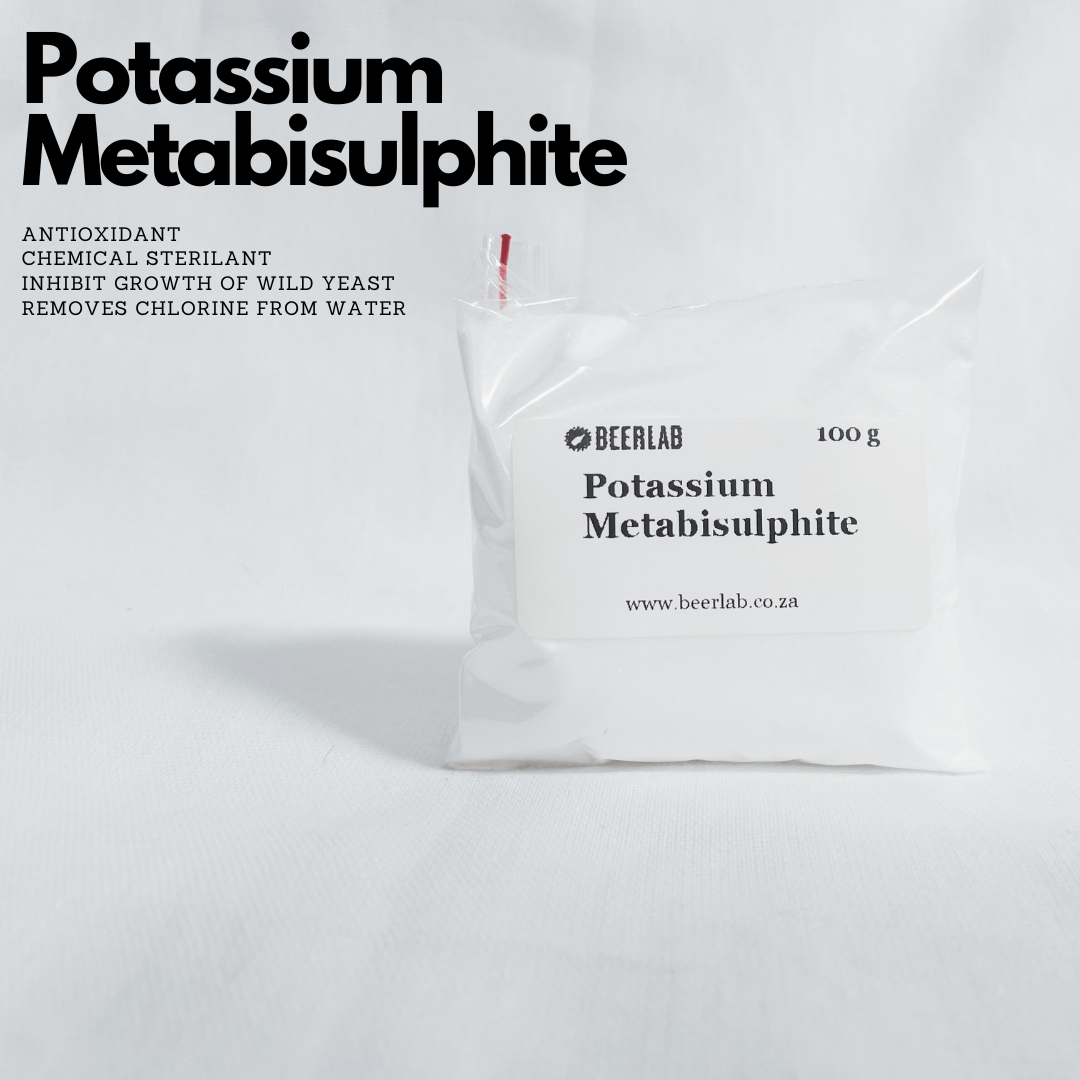1
/
of
2
Potassium Metabisulfite
Potassium Metabisulfite
Regular price
R 250.00 ZAR
Regular price
Sale price
R 250.00 ZAR
Unit price
/
per
Taxes included.
Shipping calculated at checkout.
Couldn't load pickup availability
Potassium Metabisulfite (K₂S₂O₅)
Sold in 100g & 1kg
- Antioxidant or chemical sterilant.
- High Purity Potassium Metabisulfite E224
It effectively kills wild yeast and bacteria. The condition of your grapes and
pH levels may vary the amount needed. This agent helps to clear the way for your yeast, better allowing it to do its job. Sulfites also aid in inhibiting enzymatic browning in white wines, and improves the flavor when used correctly.
Application
Wine
- It increases polyphenol extraction
- Acts as an antioxidant, antioxidase and antimicrobial agent
- Effectively kills wild yeast and bacteria
Beer
- Inhibit the growth of wild yeast
- Removes chlorine from water, reducing the change of off flavours in beer
Dosage
- 10 - 30g / 100 l in must according to grape conditions
- 2 - 5g/ 100l in wine at clarification, racking or after filtration
- 10 - 15g / 100l to preserve sweet wines
- 500mg is enough to treat up to 75 liters of water with up to 3 ppm of chlorine or chloramine.
Instruction for use: Dissolve a small amount of water and to the must of wine to be treated
Share



